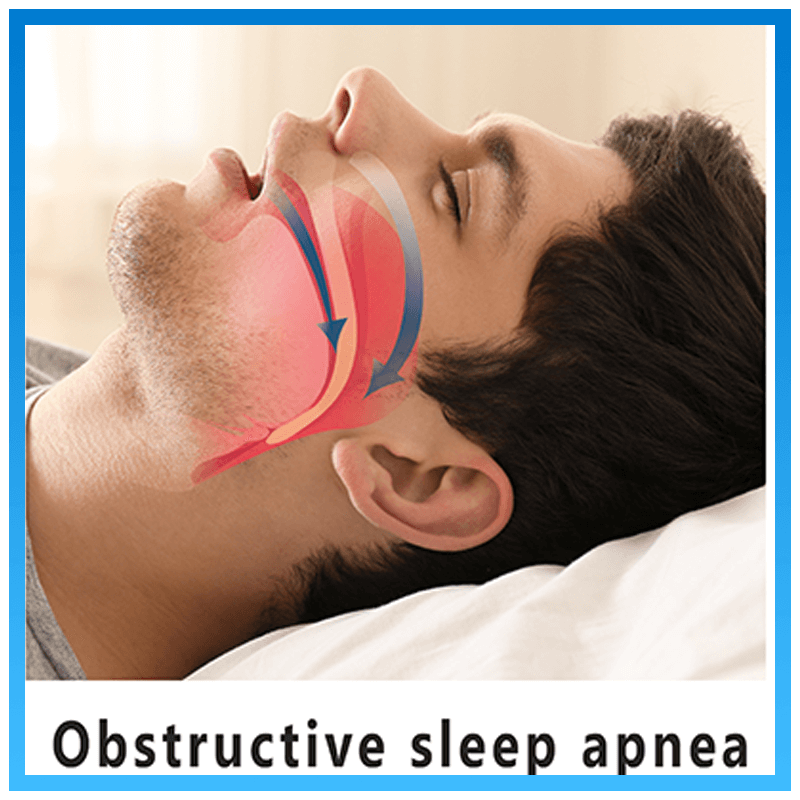
If you snore loudly, experience excessive daytime sleepiness, and disturb your bed partner, you might be among the one billion adults with obstructive sleep apnea (OSA), which is caused by relaxed throat muscles blocking your airway. Central sleep apnea (CSA) is less common and occurs when the brain fails to send proper signals to control breathing.
Risk factors for OSA include obesity, smoking, alcohol use, and family history, while CSA is often linked to chronic heart disease, neuromuscular disorders, and other severe conditions. If you suspect sleep apnea, the Sedation & Implant Dentistry team in Fort Wayne and Auburn, IN, can help with treatment or refer you to a sleep specialist for a sleep study to determine the best course of action.

Regular dental check-ups play a pivotal role in maintaining oral health and spotting signs of sleep apnea. We can customize an oral appliance for sleep apnea at Sedation & Implant Dentistry if clinically appropriate. Oral devices are a comfortable and convenient alternative to continuous positive airway pressure (CPAP) machines.
Many people who wear oral devices experience better quality sleep, improved energy, and a boost to their overall well-being. Studies show people are more likely to consistently use oral appliances than CPAP machines; therefore, comfort and compliance should be considered when choosing the best approach for you. In addition, we can suggest lifestyle changes that may alleviate your symptoms.
CPAP is a commonly prescribed sleep apnea treatment. CPAP devices use room air, which is filtered, pressurized, and humidified before being sent through a tube to your mask. The continuous stream of pressurized air flows through your airway, keeping it open while you sleep. With a CPAP machine, your muscles no longer block the oxygen flow.
Therefore, you won’t repeatedly wake up to resume breathing or gasp for air. Although CPAP is considered the most effective method for treating sleep apnea, it has downsides. Many people find the mask uncomfortable, claustrophobic, or cumbersome, and common side effects include congestion, a runny nose, dry mouth, nosebleeds, and skin irritation.
Sleep apnea appliances are custom-made dental devices that are worn while you sleep. They’re designed to reposition your jaw, tongue, and other oral structures to prevent airway obstruction. By gently moving your lower jaw forward, oral appliances help maintain an open airway, reducing or eliminating snoring and sleep apnea episodes.
When you get an oral appliance for sleep apnea in Fort Wayne, IN, or Auburn, IN, it fits your mouth comfortably, ensuring compliance and optimal effectiveness. This noninvasive treatment will benefit you and relieve your sleeping partner significantly by reducing disruptive snoring!
People with excess fat in the neck, tongue, and upper belly are more vulnerable to sleep apnea, but losing even a small amount of weight can help alleviate symptoms. Sleeping on your side instead of your back can prevent gravity from worsening airway obstruction, while a good mattress, pillows, and sleep environment can enhance sleep quality.
Limiting alcohol consumption and avoiding certain medications that relax airway muscles are crucial for managing sleep apnea. Consult your doctor about any medications you take, as some can exacerbate the condition.

Sleep apnea is considered a severe medical problem and, if left untreated, can lead to heart, kidney, and metabolic health complications. Studies show that sleep apnea is associated with a higher risk of diabetes (independent of obesity) and higher blood sugar levels.
Sleep apnea is also associated with an increased incidence of anxiety, depression, irritability, and neurocognitive and performance deficits. The ongoing state of fatigue caused by sleep apnea can lead to problems at work or school and make it dangerous to drive or operate heavy machinery.
New Patient:
(260) 323-5089
Current Patient:
(260) 232-0280
Address:
12714 Coldwater Rd Suite A
Fort Wayne, IN 46845